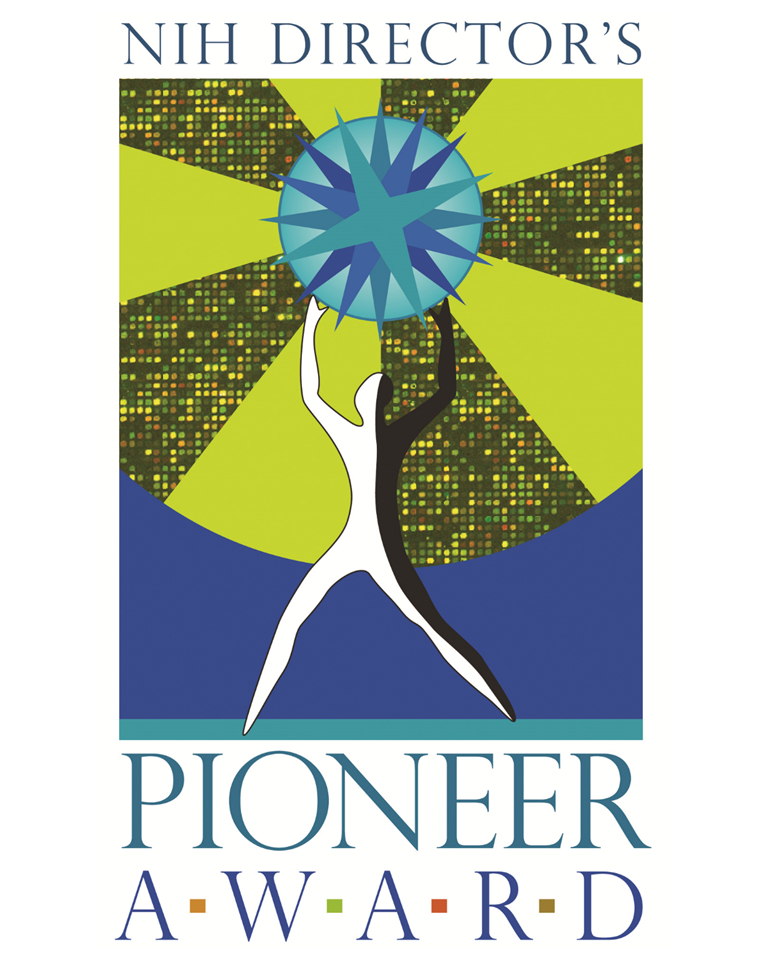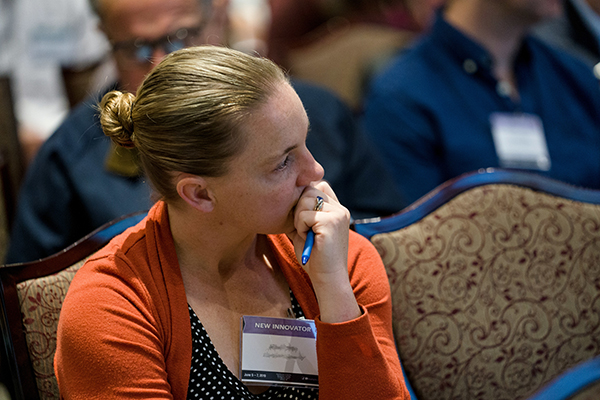Funding Opportunities for Scientists at All Career Stages with Innovative and Novel Research Ideas
The High-Risk, High-Reward Research program supports exceptionally creative scientists pursuing highly innovative research with the potential for broad impact in biomedical, behavioral, or social sciences within the NIH mission. Preliminary data are not required. The program's four constituent NIH Director's awards provide a diverse set of funding opportunities. See the individual award websites for more information and application help.
The Common Fund’s High-Risk, High-Reward Research program was created to accelerate the pace of biomedical, behavioral, and social science discoveries by supporting exceptionally creative scientists conducting highly innovative research. The program seeks to identify scientists with high-impact ideas that may be risky or at a stage too early to fare well in the traditional peer review process. The program encourages creative, outside-the-box thinkers to pursue exciting and innovative ideas in any area of biomedical, behavioral, or social science within the NIH mission. Four initiatives were created for this purpose:
The NIH Director’s Pioneer Award, established in 2004, challenges investigators at all career levels to pursue new research directions and develop groundbreaking, high-impact approaches within broad areas of biomedical, behavioral or social science.
The NIH Director’s New Innovator Award, established in 2007, supports unusually innovative research from early career investigators who are within 10 years of their final degree or post-graduate clinical training and have not yet received a research project grant or equivalent NIH grant.
The NIH Director’s Transformative Research Award, established in 2009, promotes cross-cutting, interdisciplinary approaches and is open to individuals and teams of investigators who propose unconventional research that could create or challenge existing paradigms.
The NIH Director’s Early Independence Award, established in 2011, provides an opportunity for exceptional junior scientists who have recently received their doctoral degree or completed their post-graduate clinical training to skip traditional post-doctoral training and move immediately into independent research positions.
Learn more about the different award requirements in our comparison table.
NIH Director's Pioneer Award
For scientists with outstanding records of creativity pursuing pioneering approaches to major challenges
- Open to all career stages
- Single PI only
- Must be new research direction
- Requires at least 51% research effort
- $3.5 million for 5 years
Funding Opportunity
NIH Director's New Innovator Award
For exceptionally creative early career scientists proposing innovative, high-impact projects
- Must be an Early Stage Investigator
- Single PI only
- Requires at least 25% research effort
- $1.5 million for 5 years
Funding Opportunity
NIH Director's Transformative Research Award
For individuals or teams proposing groundbreaking, unconventional research with the potential to create new scientific paradigms
- Open to all career stages
- Open to individuals or teams
- Anonymized review process
- Research effort commensurate to project needs
- Flexible budget for 5 years
Funding Opportunity
NIH Director's Early Independence Award
For exceptional junior scientists bypassing postdoctoral training to launch independent research careers
- Must complete doctoral degree or clinical training between May 1, 2023, and September 30, 2025
- Single PI only
- Must be in non-independent research position
- Limit of 2 applications per institution
- $1.25 million for 5 years












